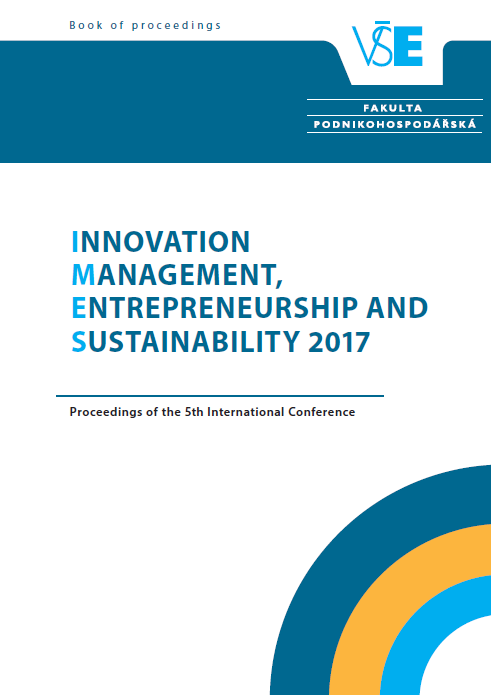Life Cycle Assessment – A Tool for Evaluating the Level of Technological Eco-innovation
Life Cycle Assessment – A Tool for Evaluating the Level of Technological Eco-innovation
Author(s): Magdalena Rybaczewska-Błażejowska
Subject(s): Politics / Political Sciences, Social Sciences, Economy
Published by: Vysoká škola ekonomická v Praze
Keywords: Eco-innovation; Enterprise; Life cycle assessment (LCA)
Summary/Abstract: Purpose: The intention of this article is to propose, examine and discuss an alternative approach for measuring the level of technological eco-innovation of enterprises, based on the methodology of life cycle assessment (LCA).Design/methodology/approach: The main objective of this research is to verify a new methodology for measuring the level of technological eco-innovation of enterprises, based on LCA. The method of LCA that is conventionally applied to assess potential environmental impacts of individual goods or processes is translated into the evaluation of a whole company. In consequence, taking into account a production structure and manufactured products, results of life cycle impact assessment (LCIA) and the origin of impacts, an environmental profile of an enterprise is created. It has the form of matrix (MATLCA ). Findings: A manufacturing company, representing the pulp and paper sector, was covered by the LCA analysis. The environmental profile of the paper mill, located in Poland, was calculated using specialised software SimaPro 8.1 and the ReCiPe method. It proved that the analysed enterprise has the most damaging effect on the environment in the following impact categories: freshwater eco-toxicity, marine eco-toxicity and natural land transformation. They result from the graphic paper, exactly materials (cellulose) used, and the process of graphic paper production, exactly energy (electricity, thermal energy and natural gas) consumption. Consequently, to be more technologically eco-innovative, first of all, the paper mill needs to move towards more energy-efficient technologies.Research/practical implications: The research proved high applicability of the proposed methodology for evaluating the level of technological eco-innovation of enterprises. Due to its universality, the method can be used both at micro level by individual enterprises and at macro level by policy makers to make a benchmark analysis of technological eco-innovation.Originality/value: This is a fully original study that proposes a new approach for quantitative description of the level of technological eco-innovation.
Book: Innovation Management, Entrepreneurship and Sustainability (IMES 2017)
- Page Range: 883-893
- Page Count: 11
- Publication Year: 2017
- Language: English
- Content File-PDF

